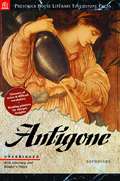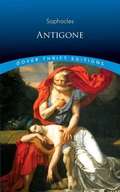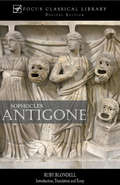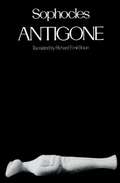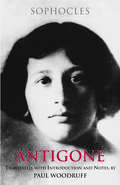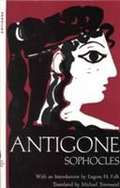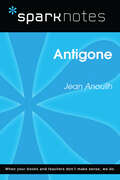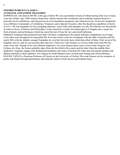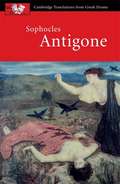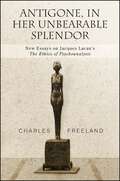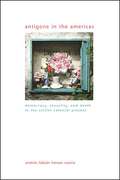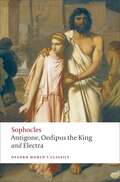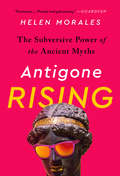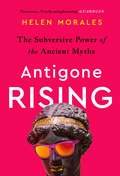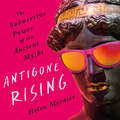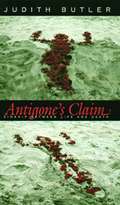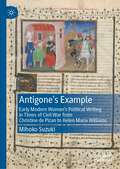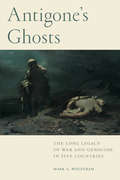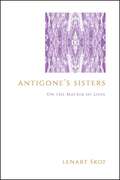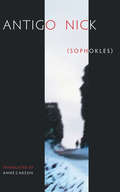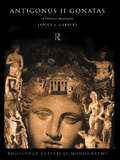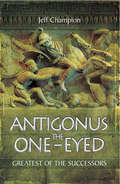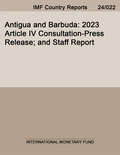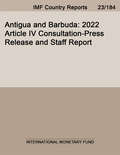- Table View
- List View
Antigone
by SophoclesTo make this quintessential Greek drama more accessible to the modern reader, this Prestwick House Literary Touchstone Edition? includes a glossary of difficult terms, a list of vocabulary words, and convenient sidebar notes. By providing these, it is our intention that readers will more fully enjoy the beauty, wisdom, and intent of the play. The curse placed on Oedipus lingers and haunts a younger generation in this new and brilliant translation of Sophocles? classic drama. The daughter of Oedipus and Jocasta, Antigone is an unconventional heroine who pits her beliefs against the King of Thebes in a bloody test of wills that leaves few unharmed. Emotions fly as she challenges the king for the right to bury her own brother. Determined but doomed, Antigone shows her inner strength throughout the play. Antigone raises issues of law and morality that are just as relevant today as they were more than two thousand years ago. Whether this is your first reading or your twentieth, Antigone will move you as few pieces of literature can.
Antigone
by Sophocles Stanley ApplebaumFilled with passionate speeches and sensitive probing of moral and philosophical issues, this powerful drama reveals the grim fate that befalls the children of Oedipus. When Antigone, the daughter of Oedipus, chooses to obey the law of the gods rather than an unconscionable command from Creon, ruler of Thebes, she is condemned to death. How the gods take their revenge on Creon provides the gripping denouement to this compelling tragedy, still one of the most frequently performed of classical Greek dramas.
Antigone
by Sophocles Ruby BlondellThis is an English translation of Sophocles' tragedy of Antigone and her fate when she decides to bury her dead brother Polyneices. Focus Classical Library provides close translations with notes and essays to provide access to understanding Greek culture.
Antigone
by Sophocles Richard BraunBased on the conviction that only translators who write poetry themselves can properly recreate the celebrated and timeless tragedies of Aeschylus, Sophocles, and Euripides, the Greek Tragedy in New Translations series offers new translations that go beyond the literal meaning of the Greek in order to evoke the poetry of the originals. The series seeks to recover the entire extant corpus of Greek tragedy, quite as though the ancient tragedians wrote in the English of our own time. Under the editorship of Peter Burian and Alan Shapiro, each of these volumes includes a critical introduction, commentary on the text, full stage directions, and a glossary of the mythical and geographical references in the plays. <p><p> This finely tuned translation of Sophocles' Antigone by Richard Emil Braun, both a distinguished poet and a professional scholar critic, offers, in lean, sinewy verse and lyrics of unusual intensity, an interpretation informed by exemplary scholarship and critical insight. Braun presents an Antigone not marred by excessive sentimentality or pietistic attitudes. <p> His translation underscores the extraordinary structural symmetry and beauty of Sophocles' design by focusing on the balanced and harmonious view of tragically opposed wills that makes the play so moving. Unlike the traditionally gentle and pious protagonist opposed to a brutal and villainous Creon, Braun's Antigone emerges as a true Sophoclean heroine with all the harshness and even hubris, as well as pathos and beauty, that Sophoclean heroism requires. Braun also reveals a Creon as stubbornly "principled" as Antigone, instead of simply the arrogant tyrant of conventional interpretations.
Antigone
by Paul Woodruff Sophocles<P>Woodruff's work with Peter Meineck makes this text one that is accessible to today's students and could be staged for modern audiences. Line notes printed at the bottom of the page bring a reader further quick assistance. . . . <P>The choral odes as rendered here deserve special notice. After giving a succinct analysis of each in his introduction, Woodruff translates the lyrics into English that is both poetic and comprehensible. . . . <P>Woodruff's rendering of the dialogue moves along easily; these are lines that any contemporary Antigone, Creon or Haemon might speak. Antigone's words on the gods' unwritten laws keep close to the Greek and yet would be authentic for a modern speaker. . . . <P> Woodruff's introduction is a strong, clear, and clever blend of basic traditional information (to those who know Greek tragedy) and fresh insights. . . .
Antigone
by Sophocles Michael Townsend Eugene H. FalkCreon, in the Antigone of Sophocles, seems to offer a rather striking example of the theory of tragedy as it is formulated in S. H. Butcher's Aristotle's Theory of Poetry and Fine Arts. Creon is truly engaged in an unequal struggle with destiny; through his ruin the disturbed order of the world is restored and the moral forces reassert their sway.
Antigone (SparkNotes Literature Guide Series)
by SparkNotesAntigone (SparkNotes Literature Guide) by Jean Anouilh Making the reading experience fun! Antigone (SparkNotes Literature Guide) Created by Harvard students for students everywhere, SparkNotes is a new breed of study guide: smarter, better, faster.Geared to what today's students need to know, SparkNotes provides:*chapter-by-chapter analysis *explanations of key themes, motifs, and symbols *a review quiz and essay topics Lively and accessible, these guides are perfect for late-night studying and writing papers.
Antigone and other Tragedies: Antigone, Deianeira, Electra (Oxford World's Classics.)
by Oliver Taplin SophoclesSophocles stands as one of the greatest dramatists of all time, and one of the most influential on artists and thinkers over the centuries. His plays are deeply disturbing and unpredictable, unrelenting and open-ended, refusing to present firm answers to the questions of human existence, or to provide a redemptive justification of the ways of gods to men-or women. These three tragedies portray the extremes of human suffering and emotion, turning the heroic myths into supreme works of poetry and dramatic action.
Antigone (Cambridge Translations from Greek Drama)
by David Franklin Edited Translated By John Harrison Edited Contribution By Judith Affleck P. E. Easterling SophoclesTreating ancient plays as living drama. Classical Greek drama is brought vividly to life in this series of new translations. Students are encouraged to engage with the text through detailed commentaries, including suggestions for discussion and analysis. In addition, numerous practical questions stimulate ideas on staging and encourage students to explore the play's dramatic qualities. Antigone is suitable for students of both Classical Civilisation and Drama. Useful features include full synopsis of the play, commentary alongside translation for easy reference and a comprehensive introduction to the Greek Theatre. Antigone is aimed primarily at A-level and undergraduate students in the UK, and college students in North America.
Antigone, in Her Unbearable Splendor: New Essays on Jacques Lacan's The Ethics of Psychoanalysis (SUNY series, Intersections: Philosophy and Critical Theory)
by Charles FreelandWith its privileging of the unconscious, Jacques Lacan's psychoanalytic thought would seem to be at odds with the goals and methods of philosophy. Lacan himself embraced the term "anti-philosophy" in characterizing his work, and yet his seminars undeniably evince rich engagement with the Western philosophical tradition. These essays explore how Lacan's work challenges and builds on this tradition of ethical and political thought, connecting his "ethics of psychoanalysis" to both the classical Greek tradition of Socrates, Plato, and Aristotle, and to the Enlightenment tradition of Kant, Hegel, and de Sade. Charles Freeland shows how Lacan critically addressed some of the key ethical concerns of those traditions: the pursuit of truth and the ethical good, the ideals of self-knowledge and the care of the soul, and the relation of moral law to the tragic dimensions of death and desire. Rather than sustaining the characterization of Lacan's work as "anti-philosophical," these essays identify a resonance capable of enriching philosophy by opening it to wider and evermore challenging perspectives.
Antigone in the Americas: Democracy, Sexuality, and Death in the Settler Colonial Present (SUNY series in Gender Theory)
by Andrés Fabián Henao CastroSophocles's classical tragedy, Antigone, is continually reinvented, particularly in the Americas. Theater practitioners and political theorists alike revisit the story to hold states accountable for their democratic exclusions, as Antigone did in disobeying the edict of her uncle, Creon, for refusing to bury her brother, Polynices. Antigone in the Americas not only analyzes the theoretical reception of Antigone, when resituated in the Americas, but further introduces decolonial rumination as a new interpretive methodology through which to approach classical texts. Traveling between modern present and ancient past, Andrés Fabián Henao Castro focuses on metics (resident aliens) and slaves, rather than citizens, making the feminist politics of burial long associated with Antigone relevant for theorizing militant forms of mourning in the global south. Grounded in settler colonial critique, black and woman of color feminisms, and queer and trans of color critique, Antigone in the Americas offers a more radical interpretation of Antigone, one relevant to subjects situated under multiple and interlocking systems of oppression.
Antigone, Interrupted
by Bonnie HonigSophocles' Antigone is a touchstone in democratic, feminist and legal theory, and possibly the most commented upon play in the history of philosophy and political theory. Bonnie Honig's rereading of it therefore involves intervening in a host of literatures and unsettling many of their governing assumptions. Exploring the power of Antigone in a variety of political, cultural, and theoretical settings, Honig identifies the 'Antigone-effect' - which moves those who enlist Antigone for their politics from activism into lamentation. She argues that Antigone's own lamentations can be seen not just as signs of dissidence but rather as markers of a rival world view with its own sovereignty and vitality. Honig argues that the play does not offer simply a model for resistance politics or 'equal dignity in death', but a more positive politics of counter-sovereignty and solidarity which emphasizes equality in life.
Antigone, Oedipus the King, Electra (Oxford World's Classics)
by Sophocles Edith Hall H. D. F. KittoThis volume of Antigone, Oedipus the King, Electra contains three masterpieces by the Greek playwright Sophocles, widely regarded since antiquity as the greatest of all the tragic poets. The vivid translations, which combine elegance and modernity, are remarkable for their lucidity and accuracy, and are equally suitable for reading for pleasure, study, or theatrical performance. With this edition, readers are not only offered the most influential and famous of Sophocles' works in one volume, but they are presented with two plays dominated by a female heroic figure, and the experience of the two great dynasties featured in Greek tragedy--the houses of Oedipus and Agamemnon.
Antigone Rising: The Subversive Power of the Ancient Myths
by Helen MoralesA witty, inspiring reckoning with the ancient Greek and Roman myths and their legacy, from what they can illuminate about #MeToo to the radical imagery of Beyoncé. <P><P>The picture of classical antiquity most of us learned in school is framed in certain ways -- glossing over misogyny while omitting the seeds of feminist resistance. Many of today's harmful practices, like school dress codes, exploitation of the environment, and rape culture, have their roots in the ancient world. <P><P>But in Antigone Rising, classicist Helen Morales reminds us that the myths have subversive power because they are told -- and read -- in different ways. Through these stories, whether it's Antigone's courageous stand against tyranny or the indestructible Caeneus, who inspires trans and gender queer people today, Morales uncovers hidden truths about solidarity, empowerment, and catharsis. <P><P>Antigone Rising offers a fresh understanding of the stories we take for granted, showing how we can reclaim them to challenge the status quo, spark resistance, and rail against unjust regimes.
Antigone Rising: The Subversive Power of the Ancient Myths
by Helen MoralesA witty, inspiring reckoning with the ancient Greek and Roman myths and their legacy, from what they can illuminate about #MeToo to the radical imagery of Beyoncé.The picture of classical antiquity most of us learned in school is framed in certain ways -- glossing over misogyny while omitting the seeds of feminist resistance. Many of today's harmful practices, like school dress codes, exploitation of the environment, and rape culture, have their roots in the ancient world.But in Antigone Rising, classicist Helen Morales reminds us that the myths have subversive power because they are told -- and read -- in different ways. Through these stories, whether it's Antigone's courageous stand against tyranny or the indestructible Caeneus, who inspires trans and gender queer people today, Morales uncovers hidden truths about solidarity, empowerment, and catharsis.Antigone Rising offers a fresh understanding of the stories we take for granted, showing how we can reclaim them to challenge the status quo, spark resistance, and rail against unjust regimes.
Antigone Rising: The Subversive Power of the Ancient Myths
by Helen MoralesA witty, inspiring reckoning with the ancient Greek and Roman myths and their legacy, from what they can illuminate about #MeToo to the radical imagery of Beyoncé.The picture of classical antiquity most of us learned in school is framed in certain ways -- glossing over misogyny while omitting the seeds of feminist resistance. Many of today's harmful practices, like school dress codes, exploitation of the environment, and rape culture, have their roots in the ancient world.But in Antigone Rising, classicist Helen Morales reminds us that the myths have subversive power because they are told -- and read -- in different ways. Through these stories, whether it's Antigone's courageous stand against tyranny or the indestructible Caeneus, who inspires trans and gender queer people today, Morales uncovers hidden truths about solidarity, empowerment, and catharsis.Antigone Rising offers a fresh understanding of the stories we take for granted, showing how we can reclaim them to challenge the status quo, spark resistance, and rail against unjust regimes.(P) 2020 Hachette Audio
Antigone's Claim: Kinship Between Life and Death (The Wellek Library Lectures)
by Judith ButlerThe celebrated author of Gender Trouble here redefines Antigone's legacy, recovering her revolutionary significance and liberating it for a progressive feminism and sexual politics. Butler's new interpretation does nothing less than reconceptualize the incest taboo in relation to kinship—and open up the concept of kinship to cultural change. <P><P>Antigone, the renowned insurgent from Sophocles's Oedipus, has long been a feminist icon of defiance. But what has remained unclear is whether she escapes from the forms of power that she opposes. Antigone proves to be a more ambivalent figure for feminism than has been acknowledged, since the form of defiance she exemplifies also leads to her death. Butler argues that Antigone represents a form of feminist and sexual agency that is fraught with risk. Moreover, Antigone shows how the constraints of normative kinship unfairly decide what will and will not be a livable life.Butler explores the meaning of Antigone, wondering what forms of kinship might have allowed her to live. Along the way, she considers the works of such philosophers as Hegel, Lacan, and Irigaray. How, she asks, would psychoanalysis have been different if it had taken Antigone—the "postoedipal" subject—rather than Oedipus as its point of departure? If the incest taboo is reconceived so that it does not mandate heterosexuality as its solution, what forms of sexual alliance and new kinship might be acknowledged as a result? The book relates the courageous deeds of Antigone to the claims made by those whose relations are still not honored as those of proper kinship, showing how a culture of normative heterosexuality obstructs our capacity to see what sexual freedom and political agency could be.
Antigone's Example: Early Modern Women's Political Writing in Times of Civil War from Christine de Pizan to Helen Maria Williams
by Mihoko SuzukiThis book investigates early modern women’s interventions in politics and the public sphere during times of civil war in England and France. Taking this transcultural and comparative perspective, and the period designation “early modern” expansively, Antigone’s Example identifies a canon of women’s civil-war writings; it elucidates their historical specificity as well as the transhistorical context of civil war, a context which, it argues, enabled women’s participation in political thought.
Antigone's Ghosts: The Long Legacy of War and Genocide in Five Countries
by Mark A. WolfgramSophocles' play Antigone is a starting point for understanding the perpetual problems of human societies, families, and individuals, who are caught up in the terrible aftermath of mass violence. What is one to do after the killing has stopped? What can be done to prevent a round of new violence? The tragic and dramatic tension in the play is put in motion by setting an unyielding Antigone against King Creon. As we see through the investigation of how Germany, Japan, Spain, Yugoslavia and Turkey have dealt with their histories of mass violence and genocide in the 20th century, the forces represented by Antigone and Creon remain very much part of our world today. Through a comparison of the five countries, their political institutions, and cultural traditions, we begin to appreciate the different pathways that societies have taken when confronting their violent histories. Published by Bucknell University Press. Distributed worldwide by Rutgers University Press.
Antigone's Sisters: On the Matrix of Love (SUNY series in Theology and Continental Thought)
by Lenart ŠkofIn Antigone's Sisters, Lenart Škof explores the power of love in our world—stronger than violence and, ultimately, stronger even than death. Focusing on Antigone, Savitri, and Mary, the book offers an investigation into various goddesses and feminine figures from a variety of philosophical, mythological, theological, and literary contexts. The book also elaborates on the feminine aspects of selected concepts from modern philosophical texts, such as the Matrix in Jakob Böhme, Clara in F. W. J. Schelling, beyng in Martin Heidegger, chóra in Jacques Derrida, and breath in Luce Irigaray's thought. Drawing on Bracha M. Ettinger's concept of matrixiality, Škof proposes a new matrixial theory of philosophy, cosmology, and theology of love. Despite its many usages and appropriations, love remains a neglected topic within Western philosophy. With its new interpretation of Antigone and related readings of Irigaray, Kristeva, and Ettinger, Antigone's Sisters aims to identify some of the reasons for this forgetting of love, and to show that it is only love that can bring peace to our ethically disrupted world.
Antigonick
by Anne CarsonAn illustrated new translation of Sophokles' Antigone. Anne Carson has published translations of the ancient Greek poets Sappho, Simonides, Aiskhylos, Sophokles and Euripides. Antigonick is her seminal work. Sophokles' luminous and disturbing tragedy is here given an entirely fresh language and presentation. This paperback edition includes a new preface by the author, "Dear Antigone."
Antigonus II Gonatas: A Political Biography
by Janice J. GabbertFirst Published in 2004. Routledge is an imprint of Taylor & Francis, an informa company.
Antigonus the One-Eyed: Greatest of the Successors
by Jeff ChampionThe author of Pyrrhus of Epirus &“tells the exciting story of one of those competing to succeed Alexander the Great . . . Recommended.&” —Firetrench Plutarch described Antigonus the One Eyed (382-301 BC) as &“the oldest and greatest of Alexander&’s successors.&” Antigonus loyally served both Philip II and Alexander the Great as they converted his native Macedonia into an empire stretching from India to Greece. After Alexander&’s death, Antigonus, then governor of the obscure province of Phrygia, seemed one of the least likely of his commanders to seize the dead king&’s inheritance. Yet within eight years of the king&’s passing, through a combination of military skill and political shrewdness, he had conquered the Asian portion of the empire. Antigonus&’ success caused those who controlled the European and Egyptian parts of the empire to unite against him. For another fourteen years he would wage war against a coalition of the other Successors, Ptolemy, Lysimachus, Seleucus and Cassander. In 301 he would meet defeat and death in the Battle of Ipsus. The ancient writers saw Antigonus&’ life as a cautionary tale about the dangers of hubris and vaulting ambition. Despite his apparent defeat, his descendants would continue to rule as kings and create a dynasty that would rule Macedonia for over a century. Jeff Champion narrates the career of this titanic figure with the focus squarely on the military aspects. &“It is far time that we have a biography of one of the greatest men of Hellenistic society . . . His rise from this backwater to almost becoming the king of the entire Macedonian empire is detailed by the author.&”—A Wargamers Needful Things.
Antigua and Barbuda: 2023 Article Iv Consultation-press Release; And Staff Report (Imf Staff Country Reports)
by International Monetary Fund. Western Hemisphere Dept.A report from the International Monetary Fund.
Antigua and Barbuda: 2022 Article IV Consultation-Press Release and Staff Report
by International Monetary Fund. Western Hemisphere Dept.A report from the International Monetary Fund.
